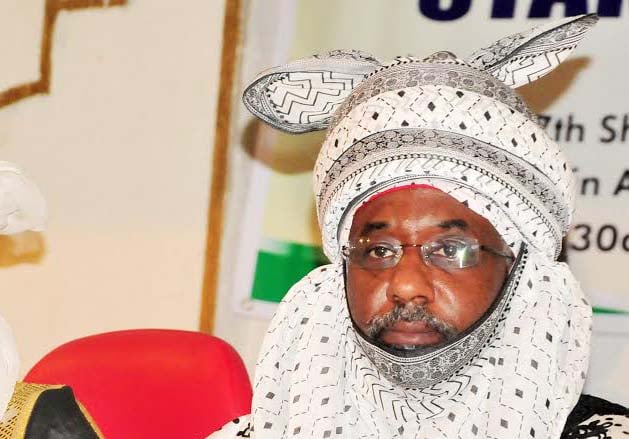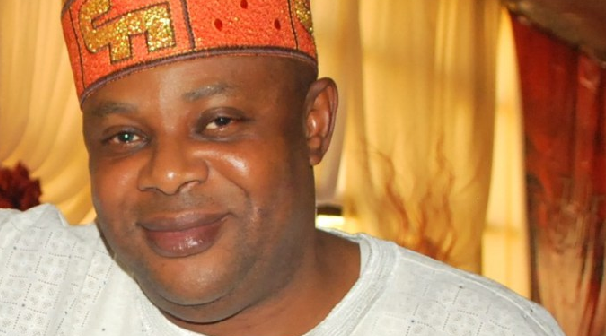Emir of Kano, Muhammadu Sanusi II on Wednesday said that Nigeria is experiencing economic recession due to the implementation of a “foolish, unrealistic and unsustainable” policy.
The former CBN governor wondered why anyone would be surprised that the country is “bankrupt”, saying the refusal of the elite to listen all these years led us down this path.
Sanusi said this while delivering a lecture on deregulation of the downstream oil sector and Nigeria’s economic development at the National Defence College, Abuja.
“Nigeria is bankrupt; we are bankrupted by a policy that was foolish, that was unrealistic, and unsustainable, and by all means our refusal over the years to listen,” he said.
Advertisement
“We are surprised that we have an economic recession; we are actually surprised that we are in recession? We created the recession.
“The oil sector is only 15 per cent of GDP, yet oil accounts for 70 per cent of government revenues, oil accounts for 99 per cent of our foreign earnings.
“We got to a point when even though the numbers were staring us in the face, the entire nation was in denial. In 2009 when I became governor of Central Bank, the Nigerian government spent N291 billion that year subsidizing petroleum products.
Advertisement
“Two years later in 2011, N2.13 trillion was spent on the same subsidy, so has our population increased ten fold? It was very clear that this wasn’t oil subsidy; it was a scam.
“The whole issue of fuel subsidy was set up to create an opportunity for a few people to make money, and it was presented in a manner that convinced everybody that it was for the poor.
“For every 30,000 metric tonnes of kerosene imported into the country, the Federation Account lost $20m. We were importing six to eight vessels per month for six years until this subsidy unload; the Federation Account was losing from $120m to $160m every month.
“This is just on kerosene; can you imagine a country losing $120m every month to a non-existent subsidy on kerosene, and not on the PMS. This is how bad non-deregulation was because it allowed a small group of criminals to garner so much financial resources as to undermine every single institution that we had for checks and balances.”
Advertisement
Add a comment







